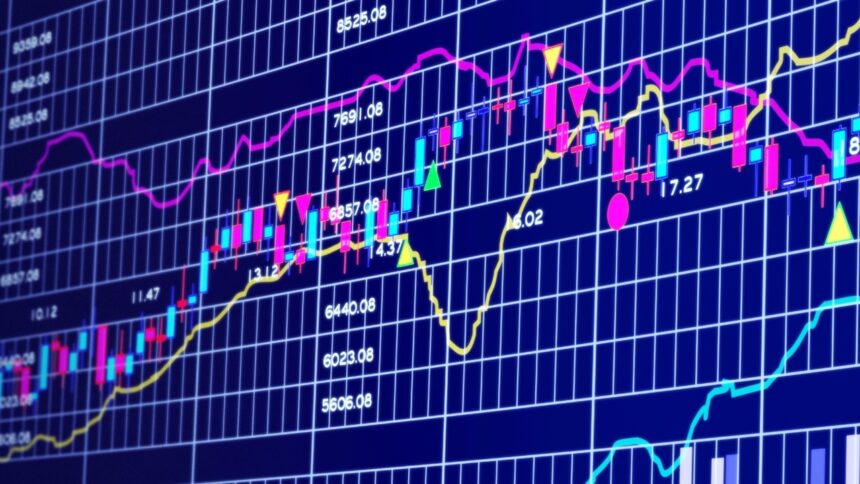In the realm of modern finance, algorithmic trading has emerged as a transformative force, reshaping the landscape of financial markets globally. This advanced form of trading utilizes complex algorithms to execute orders at high speeds and frequencies, often within microseconds. The advent of algorithmic trading has brought about significant changes, both beneficial and controversial, influencing market efficiency, liquidity, volatility, and regulatory considerations.
Evolution and Mechanics of Algorithmic Trading
Algorithmic trading, also known as algo trading or black-box trading, represents a departure from traditional manual trading methods. It involves the use of computer algorithms programmed to follow specific instructions for placing trades. These algorithms analyze vast amounts of data, including market trends, price movements, volume, and other variables, to identify trading opportunities and execute orders with precision and speed.
The evolution of algorithmic trading can be traced back to the 1980s when advancements in computing power and telecommunications enabled the development of sophisticated trading strategies. Initially used by institutional investors and large financial firms, algorithmic trading has since proliferated across various asset classes, including equities, commodities, currencies, and derivatives.
Benefits of Algorithmic Trading
One of the primary benefits of algorithmic trading is its ability to enhance market efficiency. By rapidly processing and reacting to market information, algorithms can exploit price discrepancies across different markets or assets, thereby narrowing spreads and improving liquidity. This efficiency contributes to lower transaction costs for investors and facilitates more orderly market conditions.
Moreover, algorithmic trading has democratized access to sophisticated trading strategies that were once exclusive to institutional investors. Retail traders and smaller firms can now leverage algorithms to execute trades based on predefined criteria, such as price movements, technical indicators, or statistical arbitrage opportunities.
Impact on Market Liquidity and Volatility
Algorithmic trading has had a profound impact on market liquidity, defined as the ease with which assets can be bought or sold without significantly affecting their prices. High-frequency trading (HFT), a subset of algorithmic trading characterized by ultra-fast execution speeds, has contributed to increased liquidity by providing continuous buy and sell orders in the market. This liquidity benefits all market participants by reducing transaction costs and minimizing price slippage.
Conversely, algorithmic trading has also been cited as a potential contributor to market volatility, especially during periods of extreme market stress. Critics argue that algorithms can exacerbate price swings by amplifying market movements or triggering cascading sell-offs in response to sudden news events or market anomalies. The “flash crash” of May 6, 2010, serves as a notable example, where erroneous algorithms led to a rapid and temporary collapse in equity prices before recovering minutes later.
Regulatory Challenges and Considerations
The rise of algorithmic trading has presented regulatory challenges for financial authorities worldwide. Regulators must balance the benefits of algorithmic trading, such as enhanced liquidity and efficiency, with concerns over market manipulation, systemic risk, and fair access to market information.
Regulatory responses have varied, with jurisdictions implementing measures such as circuit breakers, trading halts, and market surveillance systems to mitigate potential risks associated with algorithmic trading. Additionally, regulations often require firms engaged in algorithmic trading to maintain adequate risk controls, ensure market integrity, and prevent disruptions that could destabilize financial markets.
Future Trends and Considerations
Looking ahead, the future of algorithmic trading is likely to be shaped by advancements in artificial intelligence (AI) and machine learning. These technologies promise to further refine trading algorithms by enabling them to adapt to changing market conditions, learn from past data, and anticipate future trends with greater accuracy.
Moreover, the globalization of financial markets and the proliferation of digital assets present new opportunities and challenges for algorithmic trading. Cryptocurrencies, for instance, have introduced a new asset class with unique trading dynamics and regulatory considerations that algorithmic traders must navigate.
In conclusion, algorithmic trading represents a paradigm shift in the way financial markets operate, offering unprecedented speed, efficiency, and accessibility to market participants. While the impact of algorithmic trading on financial markets is multifaceted, its potential to enhance liquidity, lower transaction costs, and democratize trading strategies underscores its pivotal role in shaping the future of finance. As technology continues to evolve, so too will the regulatory frameworks and market dynamics that govern algorithmic trading, ensuring its responsible and equitable integration into global financial systems.







